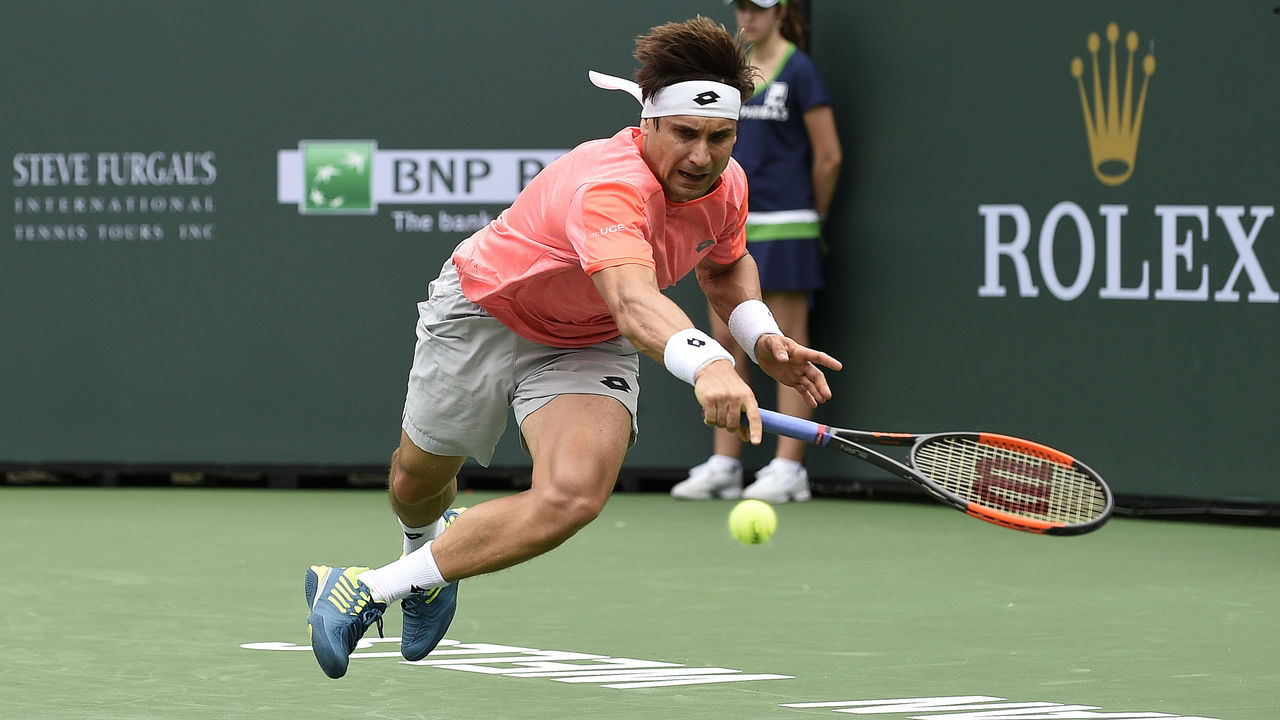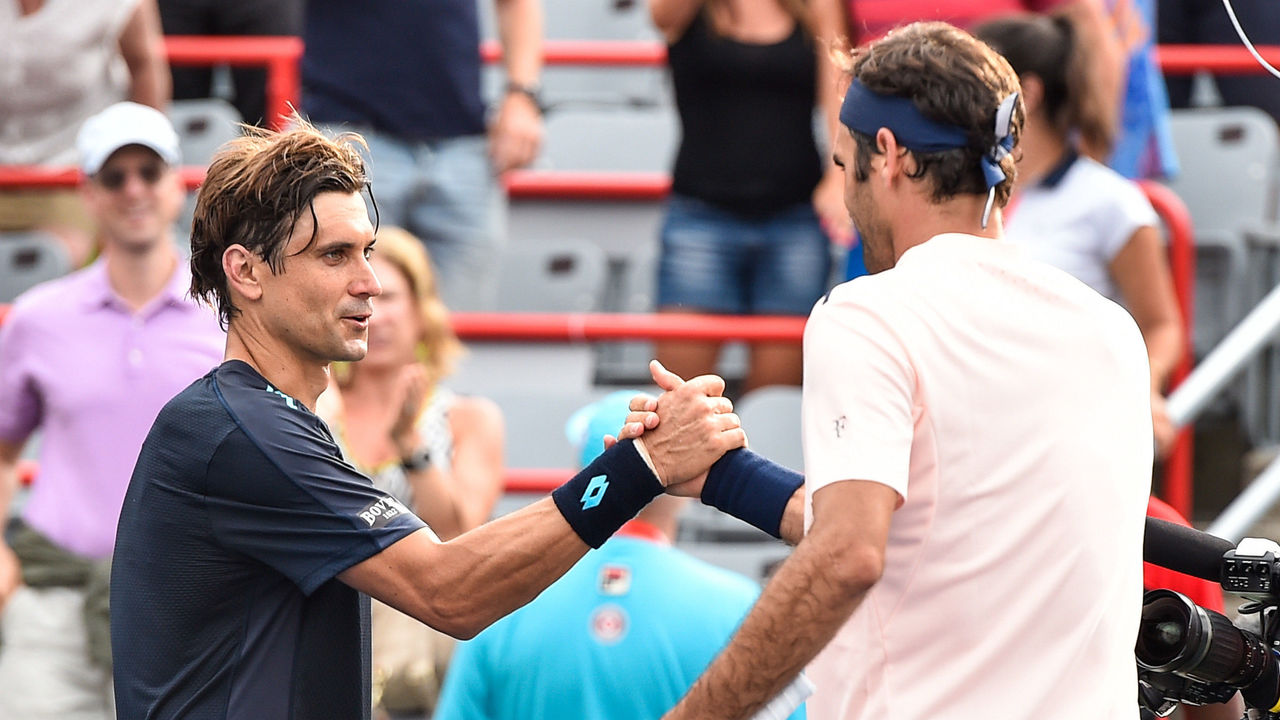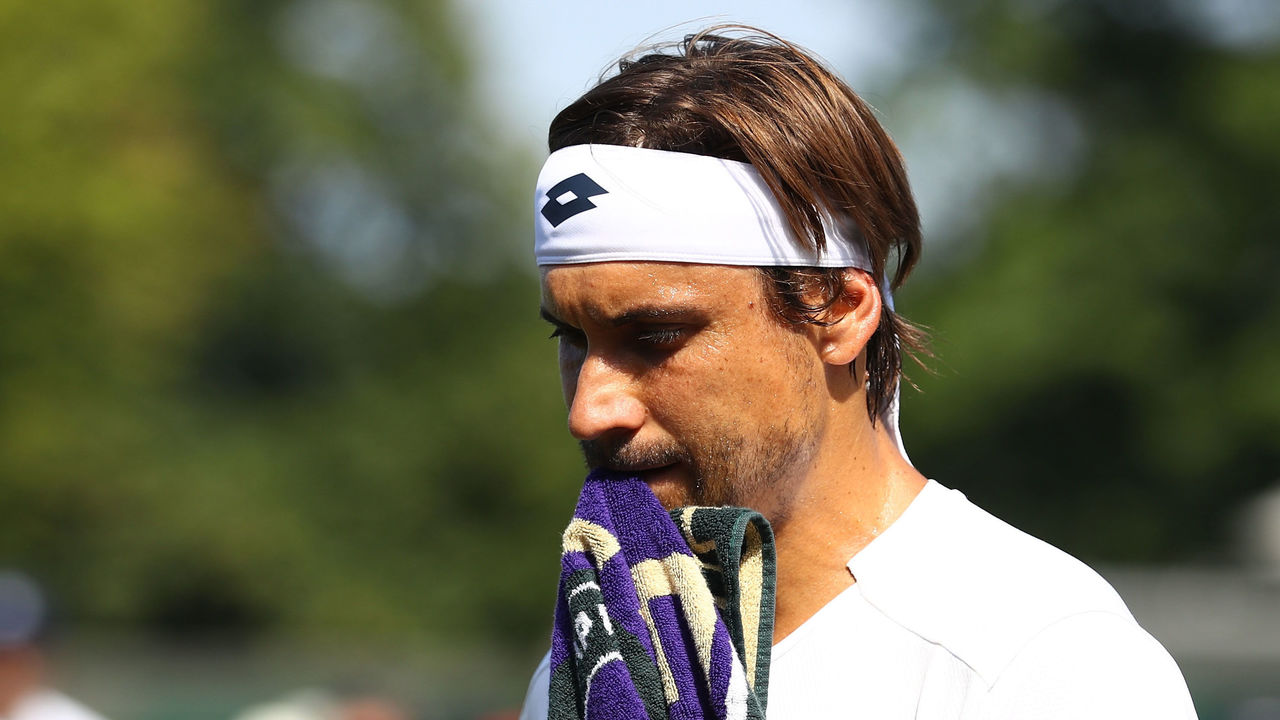Almost great: David Ferrer's illustrious career coming to a close
It's the first round of the Rogers Cup in Toronto, and David Ferrer is running out of answers.
Even though he's playing against 116th-ranked qualifier Bradley Klahn - a 27-year-old journeyman who has exactly one tour-level match win to his name in 2018 and no single elite skill to speak of - Ferrer, himself a 27-time ATP tournament champion who has spent more than 300 weeks ranked as one of the world's 10 best tennis players, can't find an edge.
He can't seem to hit away from or corral Klahn's heavy-topspin forehand, frequently pushing the ball long in response. His rare forays to the net mostly end disastrously. He gets no free points from his flat, predictable serve, and plays nearly every extended exchange from behind. On one of the rare points in which he gets himself ahead, he whacks a mid-court forehand approach well wide. He curses, loudly, in Spanish, and gets slapped with an audible obscenity warning. Ferrer, once able to fend off the most daunting power hitters in the sport, can't fend off the Challenger-Circuit vet on this day. He loses the match in straight sets - the first loss of his career to a qualifier at a Masters tournament - and when it's over, he confirms it was the last Rogers Cup match of his career. He plans to retire next spring.
It wasn't long ago that Ferrer was among the safest bets in tennis, his consistency of effort and execution making him a virtual walkover against lower-ranked opponents. He was ranked as high as sixth in the world as recently as 2016, and a year before that had arguably the best season of his career at age 33, making at least the quarterfinals at 13 of the 18 events he played and winning five titles. But life has come at Ferrer fast. He's won just nine matches this season and has lost in the first round at each of the last four majors. Last year, he fell out of the top 25 for the first time since 2005, ending a run of 617 consecutive weeks in that stratum (the ninth-longest streak of all time). This year, he's fallen out of the top 60, and with semifinal points to defend in Cincinnati next week, he could soon find himself outside the top 100.

After building himself up into a pillar of the men's tour, after years upon years of dragging opponents through the mud and slowly draining them of their will to play - their will to live - it's been jarring to watch Ferrer fade into obsolescence. He was never a particularly artful or exciting player, but in an era when players skewed steadily taller and more powerful and more serve-dominant, something about the 5-foot-8 brawler, who toppled giants with a thousand body blows rather than a knockout punch, felt necessary.
It was hard not to be taken in by Ferrer's game and court presence; his speed, his physical and psychological stamina, his manic energy; how he'd bounce up and down on his feet as he prepared to return, and talk into a clenched fist between points; how he could absorb and take the sting out of a scorching groundstroke, or read a serve with near-omniscient clarity; how brilliantly he'd play the mouse to his opponent's cat, outlasting them in grinding corner-to-corner rallies. Nobody turned a match into a test of wills like Ferrer. He might lose, but he'd always make you earn it.
On top of all that, there was the magnetism of his Sisyphean quest to get over the Big Four mountain. At his peak, Ferrer was the perfect gatekeeper, routinely beating the guys below him and just as routinely losing to the true elites. Against those guys, who could match him for fitness and mental toughness while also dwarfing his arsenal of weapons, his advantages vanished. His career record against Roger Federer, Rafa Nadal, Novak Djokovic, and Andy Murray is 17-71, including a particularly cruel 0-17 mark against Federer. In the era of the Big Four, Ferrer served as something roughly akin to a movie foil: Dangerous and determined enough to be taken seriously, to wipe out an army of redshirts, to make the protagonists sweat, only to ultimately be swept aside with a swiftness that made you question what kind of threat he really posed in the first place.

Consequently, despite ranking near the top of a handful of men's tennis leaderboards - sixth all time in prize money, 12th in total match wins, a run of 10 straight Slam quarterfinals that's tied for the fifth-longest streak in history - Ferrer's place in the record books speaks more to longevity and consistency than singular excellence. He has won more ATP matches and tournaments than any player without a major title. He was the little engine that could, until he could not.
The reliability with which Ferrer would win, and then lose, in the same fashion, for the same reasons, made him an easy player to not think about. But there was something inescapable about him. His career became a lesson about aspirations and limits. The lesson being, basically, that you can do almost anything you put your mind to. Ferrer seemed to wring everything he could out of his body, and it was enough to be very good for a very long time. It was nearly enough to be great. The work was often inglorious, but there was something inspiring about it, too. Continuing to fight an uphill battle, even in the face of certain doom ... isn't that what life is all about?
Ferrer is 36 years old now, and, without a big serve or an aptitude for the net or any other means of winning points quickly, he never had enough safeguards in place to prevent against precipitous age-related decline. As so often happens, he's being undone by the very things that made him unique and successful. What was vexing, though, watching him play one of the last hardcourt matches of his career in Toronto, was not how time-ravaged or broken down he looked, but how unchanged and intact. You watched Ferrer and for the most part he looked like Ferrer; still hustling, still grinding, still quick and skittish and energetic. He just happened to be making mistakes at the wrong times, tossing in bushels of double faults, failing to find the range on his typically rock-solid forehand, and getting worked by a journeyman as a result.

That's not to say he hasn't slowed down in meaningful if imperceptible ways. A millisecond can make all the difference in tennis, especially for a player who relies so much on instincts and whose game is naturally more reactive than proactive. It was just hard to believe that the line between success and failure could feel so slight.
But, whether or not it was evident in real time, he has plainly crossed that line. He is walking away from the sport he professes to love because he knows it. Those in attendance on the Grandstand seemed to know it, too. It was a decidedly pro-Ferrer crowd in the 2,000-seat stadium - jam-packed after a lengthy rain delay largely in anticipation of the local teen phenoms slated to take the court after him - and when Ferrer went down 0-30 while serving at 3-5 in the second set, the fans gave him a rousing ovation to try to spur him back from the brink. It worked, momentarily. He clawed his way back, saved two match points, and held. Klahn would have to serve it out.
The goalposts may have moved a long way, but one tenet was still there on display, if you squinted hard enough: Ferrer always makes you earn it.
(Photos courtesy: Getty Images)
HEADLINES
- ATP trying to help Medvedev leave Dubai after travel shutdown
- Medvedev collects Dubai title after Griekspoor withdraws with injury
- Tennis Australia's Craig Tiley to become CEO of USTA
- Roddick joining ESPN's coverage of Wimbledon, US Open
- Alcaraz takes down Fils in less than an hour to claim Qatar Open title